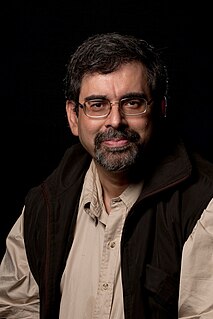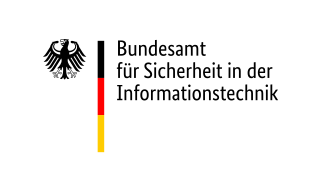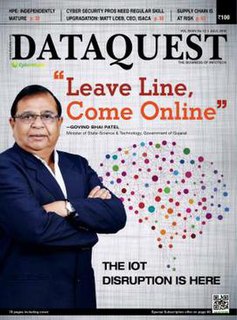
Computer security, cybersecurity, or information technology security is the protection of computer systems and networks from attack by malicious actors that may result in unauthorized information disclosure, theft of, or damage to hardware, software, or data, as well as from the disruption or misdirection of the services they provide.

Atul Chitnis was an Indo-German consulting technologist. He was one of the organizers of FOSS.IN, which was one of Asia's free and open source software (FOSS) conferences.

Digital rights are those human rights and legal rights that allow individuals to access, use, create, and publish digital media or to access and use computers, other electronic devices, and telecommunications networks. The concept is particularly related to the protection and realization of existing rights, such as the right to privacy and freedom of expression, in the context of digital technologies, especially the Internet. The laws of several countries recognize a right to Internet access.

IT security standards or cyber security standards are techniques generally outlined in published materials that attempt to protect the cyber environment of a user or organization. This environment includes users themselves, networks, devices, all software, processes, information in storage or transit, applications, services, and systems that can be connected directly or indirectly to networks.
The OpenNet Initiative (ONI) was a joint project whose goal was to monitor and report on internet filtering and surveillance practices by nations. The project employed a number of technical means, as well as an international network of investigators, to determine the extent and nature of government-run internet filtering programs. Participating academic institutions included the Citizen Lab at the Munk Centre for International Studies, University of Toronto; Berkman Center for Internet & Society at Harvard Law School; the Oxford Internet Institute (OII) at University of Oxford; and, The SecDev Group, which took over from the Advanced Network Research Group at the Cambridge Security Programme, University of Cambridge.
Educause is a nonprofit association in the United States whose mission is "to advance higher education through the use of information technology". Membership is open to institutions of higher education, corporations serving the higher education information technology market, and other related associations and organizations.

The Federal Office for Information Security is the German upper-level federal agency in charge of managing computer and communication security for the German government. Its areas of expertise and responsibility include the security of computer applications, critical infrastructure protection, Internet security, cryptography, counter eavesdropping, certification of security products and the accreditation of security test laboratories. It is located in Bonn and as of 2020 has about 1,100 employees. Its current president, since 1 February 2016, is former business executive Arne Schönbohm, who took over the presidency from Michael Hange.

The Megaphone desktop tool was a Windows "action alert" tool developed by Give Israel Your United Support (GIYUS) and distributed by World Union of Jewish Students, World Jewish Congress, The Jewish Agency for Israel, World Zionist Organization, StandWithUs, Hasbara fellowships, HonestReporting, and other pro-Israel public relations organizations. The tool was released in July during the 2006 Lebanon War. By June 2011, the tool was no longer available through the GIYUS website. An RSS newsfeed is available.

Internet police is a generic term for police and government agencies, departments and other organizations in charge of policing Internet in a number of countries. The major purposes of Internet police, depending on the state, are fighting cybercrime, as well as censorship and propaganda.
The iSmell is a commercial application of digital scent technology. Personal Scent Synthesizer developed by DigiScents Inc. was a small device that can be connected to a computer through a Universal serial bus (USB) port and powered using any ordinary electrical outlet. The appearance of the device is similar to that of a shark’s fin, with many holes lining the “fin” to release the various scents. Using a cartridge similar to a printer’s, it can synthesize and even create new smells from certain combinations of other scents. These newly created odors can be used to closely replicate common natural and man-made odors. The cartridges used also need to be swapped every so often once the scents inside are used up. Once partnered with websites and interactive media, the scents can be activated either automatically once a website is opened or manually. However, the product is no longer on the market and never generated substantial sales. Digiscent had plans for the iSmell to have several versions but did not progress past the prototype stage. The company did not last long and filed for bankruptcy a short time after.
Internet use in Algeria increased from 150,000 users in 2006 to approximately 18,583,000 in 2015, with a penetration rate of 46% of the population, In 2008, the government set aside €100 million to provide internet to every high school in the country but we saw nothing at all. The country is also modernising its internet network by installing optical fiber cables, and multi-service access nodes (MSANs) all across the country. The main internet service provider is Algérie Télécom, currently state owned but slated for privatization. In Algeria government regulations permit controls on internet access and monitoring of content. ISPs are responsible for the sites they host, and are required to take “all necessary steps to ensure constant surveillance” of content to prevent access to “material contrary to public order and morality.” These laws are often used against journalists and to prevent antigovernmental activism.

The Internet in Afghanistan was introduced in 2002 after the Karzai administration took office in Kabul. It was banned prior to 2002 because the previous Taliban government believed that it broadcast obscene, immoral, and anti-Islamic material, and because the few internet users at the time could not be easily monitored as they obtained their telephone lines from neighboring Pakistan.
In mass communication, media are the communication outlets or tools used to store and deliver information or data. The term refers to components of the mass media communications industry, such as print media, publishing, the news media, photography, cinema, broadcasting, digital media, and advertising.
Information technology law concerns the law of information technology, including computing and the internet. It is related to legal informatics, and governs the digital dissemination of both (digitized) information and software, information security and electronic commerce aspects and it has been described as "paper laws" for a "paperless environment". It raises specific issues of intellectual property in computing and online, contract law, privacy, freedom of expression, and jurisdiction.

Dataquest is an Indian magazine focused on information technology related articles. The magazine is published monthly by Cyber Media India Ltd, South Asia's largest specialty media group. It was one of the first publications to champion energy/green issues and the application of IT in governance.

The Augsburger Allgemeine Zeitung is a major German regional daily newspaper published since 1945.

Nawaat is an independent collective blog co-founded by Tunisians Sami Ben Gharbia, Sufian Guerfali and Riadh Guerfali in 2004, with Malek Khadraoui joining the organization in 2006. The goal of Nawaat's founders was to provide a public platform for Tunisian dissident voices and debates. Nawaat aggregates articles, visual media, and other data from a variety of sources to provide a forum for citizen journalists to express their opinions on current events. The site does not receive any donations from political parties. During the events leading to the Tunisian Revolution of 2011, Nawaat advised Internet users in Tunisia and other Arab nations about the dangers of being identified online and offered advice about circumventing censorship. Nawaat is an Arabic word meaning core. Nawaat has received numerous awards from international media organizations in the wake of the Arab Spring wave of revolutions throughout the Middle East and North Africa.

Internet censorship in the Russian Federation is enforced on the basis of several laws and through several mechanisms. Since 2012, Russia maintains a centralized internet blacklist maintained by the Federal Service for Supervision of Communications, Information Technology and Mass Media (Roskomnadzor).
BioSpectrum is an English language Indian biotech magazine which focuses on topics in the field of pharma, agriculture, bioinformatics including news on corporates involved at the R&D or industrial manufacturing or product/service distribution levels in the biotechnology chain.
Legit.ng is a Nigerian digital media and news platform.











